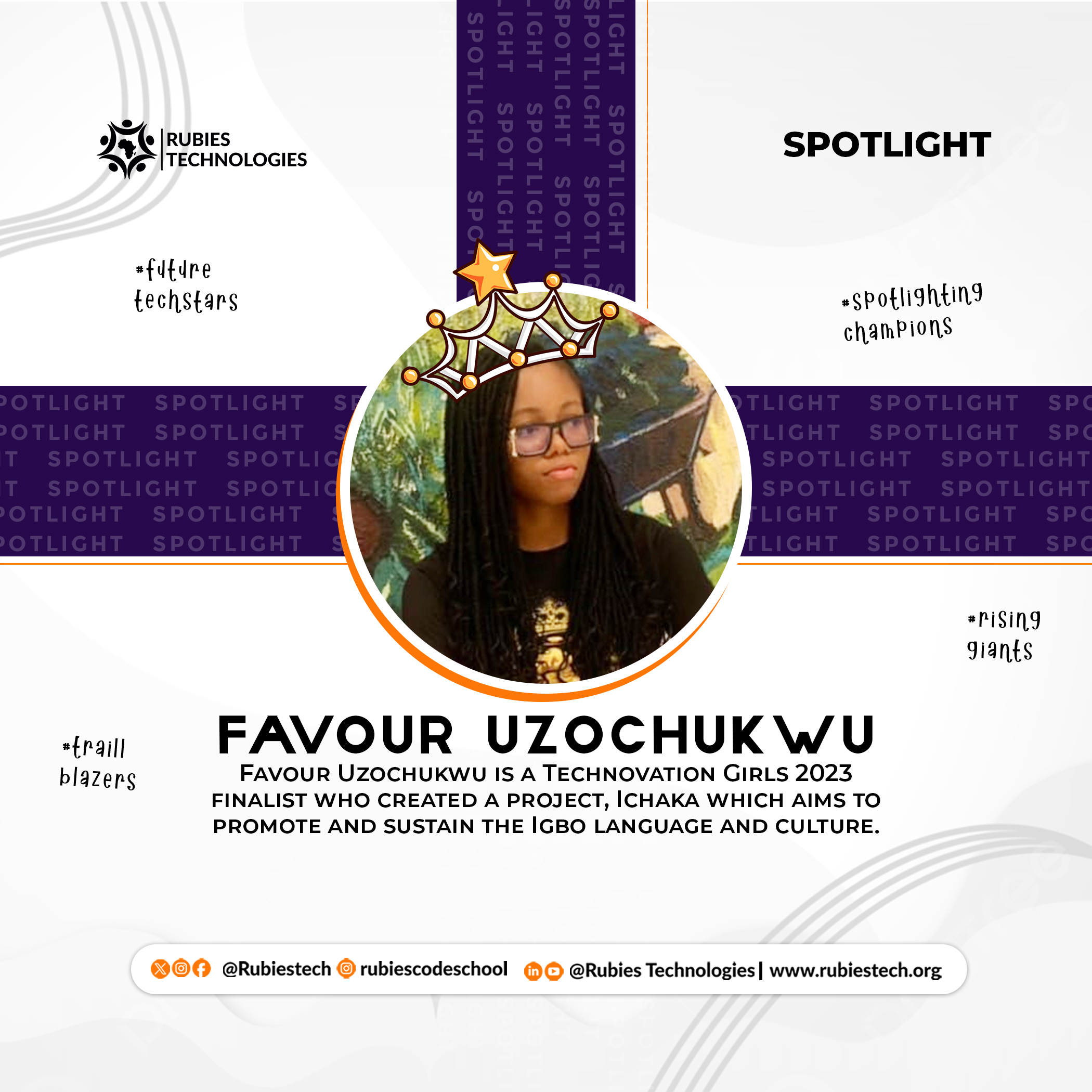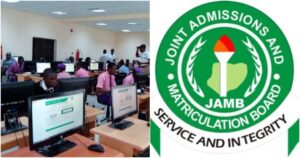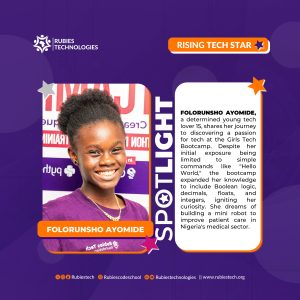Favour Uzochukwu is a Technovation 2023 finalist who created a project, Ichaka which aims to promote and sustain the Igbo language and culture. Rubies Technologies spoke with her, sharing her insight on how she started her tech journey, challenges and aspirations. Excerpts…
Can we know you?
Sure, I’m Favour Uzochukwu. I’m a 100-level computer science student at Babcock University. I’m primarily a front-end developer, but I’m currently learning back-end development. I’m a Technovation student ambassador and a Microsoft student ambassador.
As a Technovation student ambassador, I met a senior division team this season and helped anchor some events in the girls’ chapter of Technovation. As a Microsoft learning student ambassador, I’ve hosted my first event using SimpleTian A-Bots in Azure. Additionally, I’m a member of GDSC (Google Developer Student Club) at Babcock University and the Shadow Developers Club at Babcock University, where we build websites and web apps to solve student problems. That’s a bit about who I am.
When did you start having an interest in tech?
It’s hard to pinpoint exactly when I started being interested in tech. Growing up, I wanted to be a pilot, then a doctor—I didn’t quite know what I wanted to do. Around JSS 3, I saw boys doing scratch programming and other tech stuff, often challenging the girls’ abilities. Being competitive, I wanted to see what it was that boys were doing that girls couldn’t do. Around the same time, Technovation Challenge was introduced at my school, and I participated, realizing that tech was what I wanted to pursue.
My parents initially pushed me towards medicine due to stereotypes about computer science being male-dominated and associated with “yahoo” activities. However, during a gap year after secondary school, I started learning web development and participated in another Technovation Challenge. Eventually, my parents saw my passion for tech and allowed me to pursue computer science.
Can you tell us something in tech that fascinates you currently?
I’m really intrigued by the AI revolution. Even though I’m focused on web development now, I plan to venture into AI eventually. The idea that AI can solve significant problems in healthcare and climate change is fascinating to me. I’m also interested in the ethical aspects of AI and ensuring it benefits society rather than causing harm.
People often say AI will take away jobs. What do you think?
I’m undecided. On one hand, AI might take jobs away; on the other hand, it may only replace jobs for those who don’t learn to use it effectively. It comes down to how AI is used and ensuring developers consider the moral implications before deploying AI solutions.
Can you tell us about one or two projects you’ve worked on and the problems they address?
One major project is the Ichaka Project for the Technovation 2023 Challenge, which aims to promote and sustain the Igbo language and culture. The project addresses the decline in the use of the Igbo language and aims to preserve it for future generations.
Another project, developed with the Shadow Developers Club, is a web app to help Babcock University students organize their study schedules more effectively for exams.
Did you attend any tech school, or did you start learning on your own?
During my gap year after secondary school, I attended Innovation Growth Hub to learn web development. The learning method was self-taught with mentorship, where I was given resources and projects to work on independently.
Which programming language was difficult for you when you started?
JavaScript was initially challenging, but after enrolling in ALX in February 2023 and learning C, I found JavaScript easier. Learning C, which is considered difficult, made JavaScript and Python feel more easy.
How many programming languages do you work with?
I mainly work with JavaScript and Python. I have basic knowledge of C and C++, but for projects, I stick to JavaScript and Python.
What problems do you think Nigeria faces that technology can solve?
In education, I believe technology, particularly AI and web development, can help computer science students find their footing by providing online mentors to analyze strengths and weaknesses. In healthcare, technology like real-time smartwatches could alert hospitals during emergencies. For climate change, I’m still learning but believe tech can play a significant role.
Where do you see yourself in the next five years?
In five years, I see myself starting my own establishment or startup and pursuing a master’s degree in computer science. I hope to have shifted towards AI and machine learning, working on related projects.
What advice would you give to kids and parents about tech?
For parents: Open your minds about computer science. It’s not just about fraud or “yahoo” activities; it’s about solving problems and automating processes. Computer science requires as much brainwork as medicine and shouldn’t be looked down upon.
For kids: Keep an open mind and find a mentor to guide you. Research your field, be proactive in learning, network, and collaborate with peers. Computer science is a beautiful field with vast opportunities.



